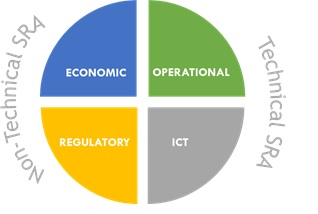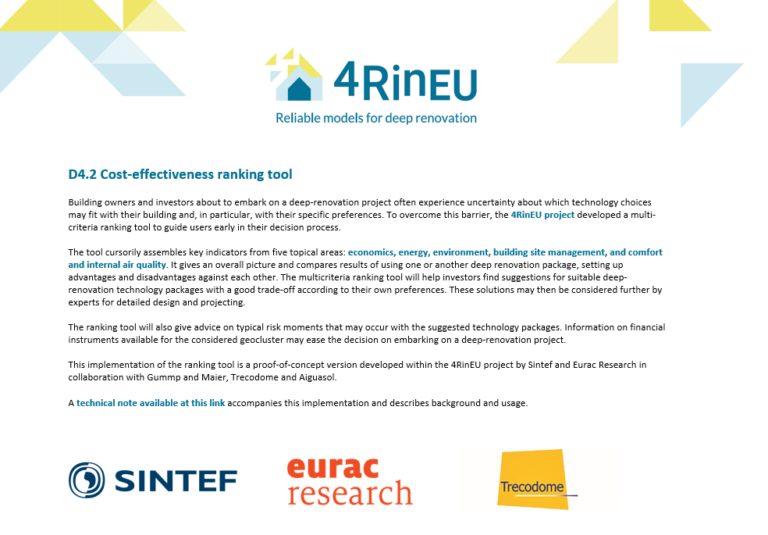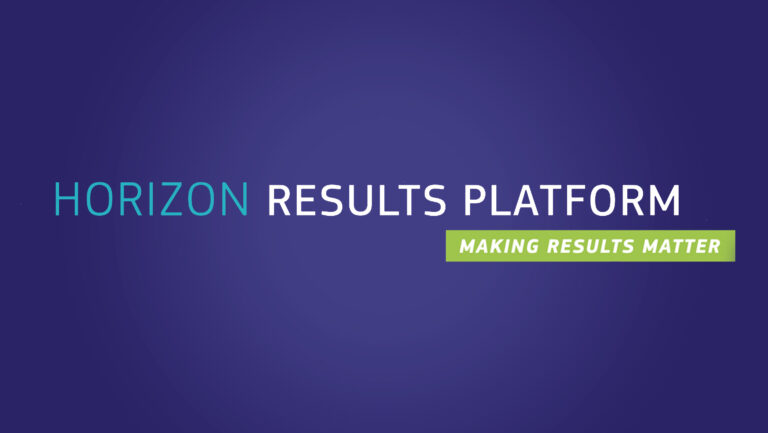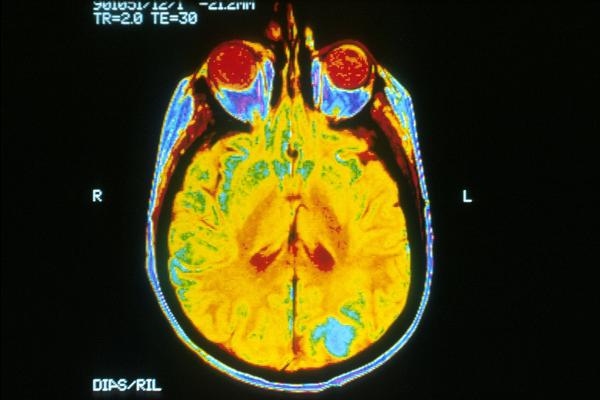Add to favorites:
Share:
Expected Outcome
Projects should contribute to all of the following expected outcomes:
- Deliver scalable and replicable integrated person-centred interventions on mental health included blended ones, in a manner that they are transferable to the new contexts in education, training and work, and studying and comparing their impacts;
- Deliver integrated person-centred interventions to all segments of population and age groups, with a particular focus for the youth with mental health conditions to improve their education, training and work trajectories, in order to ensure all these people’s inclusion into society;
- Provide relevant authorities, policy makers, key stakeholders and practitioners with viable tools to make evidence-based informed decisions for implementation to benefit mental health outcomes in education, training and work. This includes effectiveness studies as well as the delivery of data, including health economics data of the developed intervention(s) to further advance this policy area; and
- Provide quality evidence-based data to policy makers and research and innovation stakeholders to bridge the gap between mental health outcomes and related socio-economic transition.
Scope
In Europe, 84 million citizens ranging from the youth to ageing population of all socio-economic backgrounds of all genders, including vulnerable groups are suffering from various mental health issues in their everyday lives at home, at work, at school as well as in the virtual cyber-world. The mental health issues affect people in different ways and/or period(s) of their life course as well as the people who live, work and/or study in vicinity of these persons with mental health issues, and/or people who belong to their family, friends and/or social circuits.
The foundation of mental health is mostly laid in adolescence: half of all mental health conditions start by 14 years of age and most cases go undetected and untreated. The staggering figures show that the second leading cause for death of young people of 15-19 years is suicide after the road accidents.
Addressing and treating mental health conditions is therefore essential to improve the downstream impacts on education, training and work and future socio-economic outcomes. It also represents a long-term investment in public health.
Over the past years, many innovative solutions (supported EU Framework Programmes for research and Innovation and/or international, national, regional, and local initiatives) for tackling mental health problems have been developed. However, few interventions have been implemented at scale. There lacks evidence about the feasibility, acceptability and suitability of these mental health interventions at scale.
Building on innovative solutions supported by EU Framework Programmes for Research and Innovation and/or international, national, regional, and local initiatives, the challenges of the topic are:
- to significantly increase / scale-up the percentage of interventions that are actually used, and
- to involve families, individuals/communities, stakeholders and authorities, such as public services, civil society organisations in the development and implementation of interventions aimed at heterogeneous segments of population
Additional evidence is also needed about to which extend mental health interventions are actually cost-effective and cost-efficient – looking via various policy perspectives, e.g. education, training, working life, well-being and health. This would aid policy makers to decide on which one (or a combination) of the policy choices to use when weighing up policy choices in investment for education, training and work- related outcomes.
To ensure replicability, projects are required to specify clearly how they target primary prevention (benefitting an entire target group), and/ or secondary prevention (provided for vulnerable groups and individuals with existing mental health problems). The project design and implementation should clearly outline and justify who they are targeting with what types of interventions and in what type(s) of contexts.
Special attention should be paid to the visibility and communication of the research and innovation findings to direct beneficiaries of the intervention and their families, communities, wider publics and stakeholders from the start of the work.
Clustering and cooperation with other selected projects under this call and other relevant projects is strongly encouraged. Considering the complex design and implementation of these projects, it is expected that projects may take 4 years or more to deliver solid evidence for take-up by policy makers, practitioners and stakeholders, which also justifies an appropriate budget per project.
Where applicable, proposals should leverage the data and services available through European Research Infrastructures federated under the European Open Science Cloud, as well as data from relevant Data Spaces. Particular efforts should be made to ensure that the data produced in the context of this topic is FAIR (Findable, Accessible, Interoperable and Re-usable).
Partner Requests
Explore Real Collaboration Opportunities
🔍 As a logged-in member, you now have exclusive access to all active Partner Requests for this Funding Call.
See who’s looking for collaborators, explore exciting project ideas, and discover how others are planning to make an impact.
💡 Use these insights to get inspired—or take the next step and start a request of your own (3 entries for free).
Log in or registrate here for free.
You must be logged in to submit or manage a partner request.
Ask our experts about this call
Connect with the Listing Owner!
💬 Please log in now to send a direct message to our experts and ask your questions. Not a member yet? Sign up for free and start connecting today!
Related Funding and Finance Opportunities
Unlock Exclusive Funding Opportunities!
🔑 Get instant access to tailored funding opportunities that perfectly match your needs. This powerful feature is exclusively available to our premium members—helping you save time, stay ahead of the competition, and secure the right funding faster.
Upgrade to Premium now and never miss an important opportunity again! Already a premium member? Log in here to explore your matches.
Related Innovation Offers
Related Knowledgebase Resources
Discover More with Premium: Related Knowledge Resources
🔒 You’re missing out on expert-curated knowledge specifically matched to this topic. As a Premium member, you gain exclusive access to in-depth articles, guides, and insights that help you make smarter decisions, faster.
Whether you’re preparing a funding proposal, researching a new market, or just need reliable information—our Premium knowledge matches save you hours of research and point you directly to what matters.
Upgrade to Premium now and instantly unlock relevant knowledge tailored to your needs! Already a member? Log in here to view your personalized content.
Access Restricted
This funding opportunity is only fully available to premium members.





























